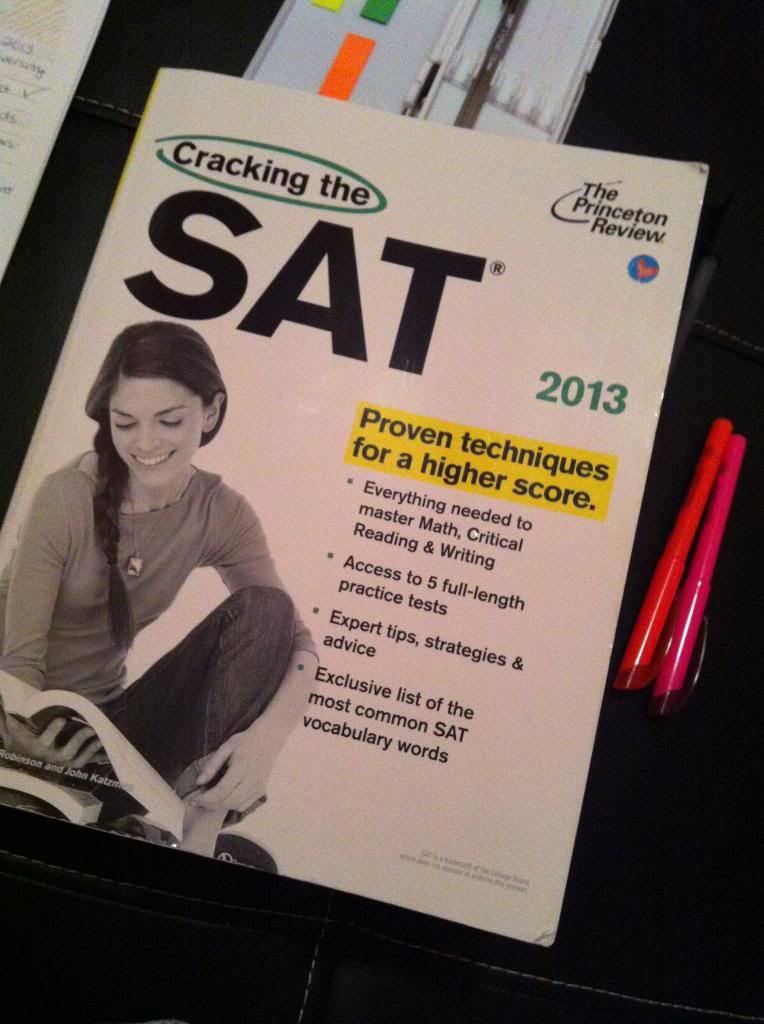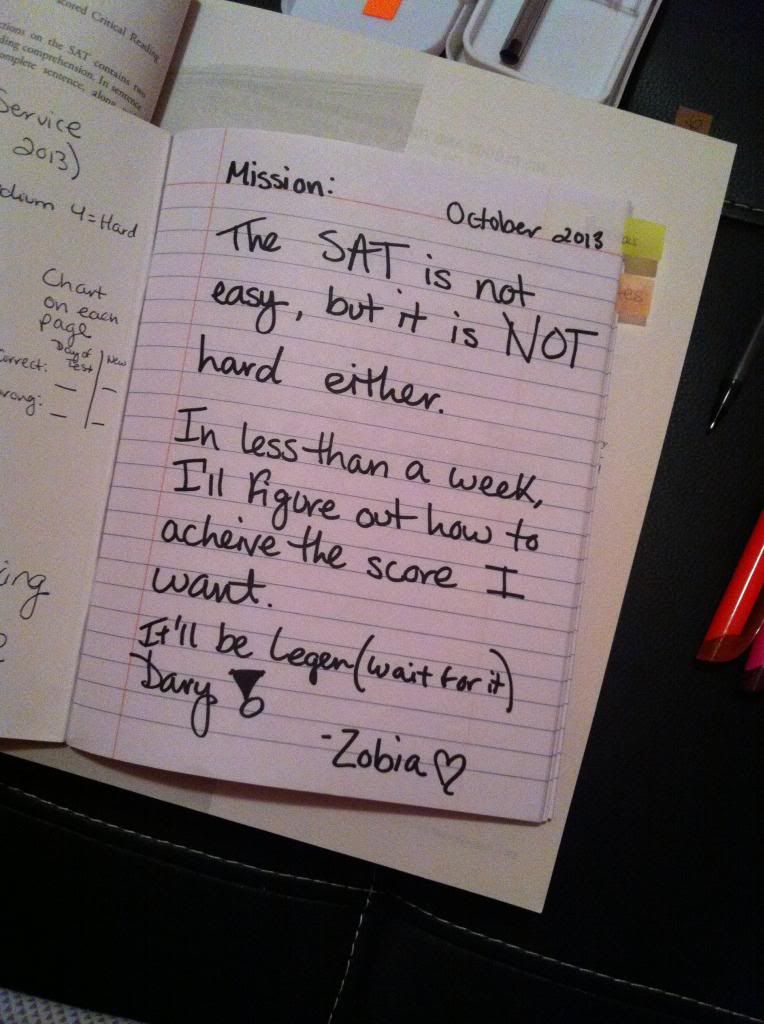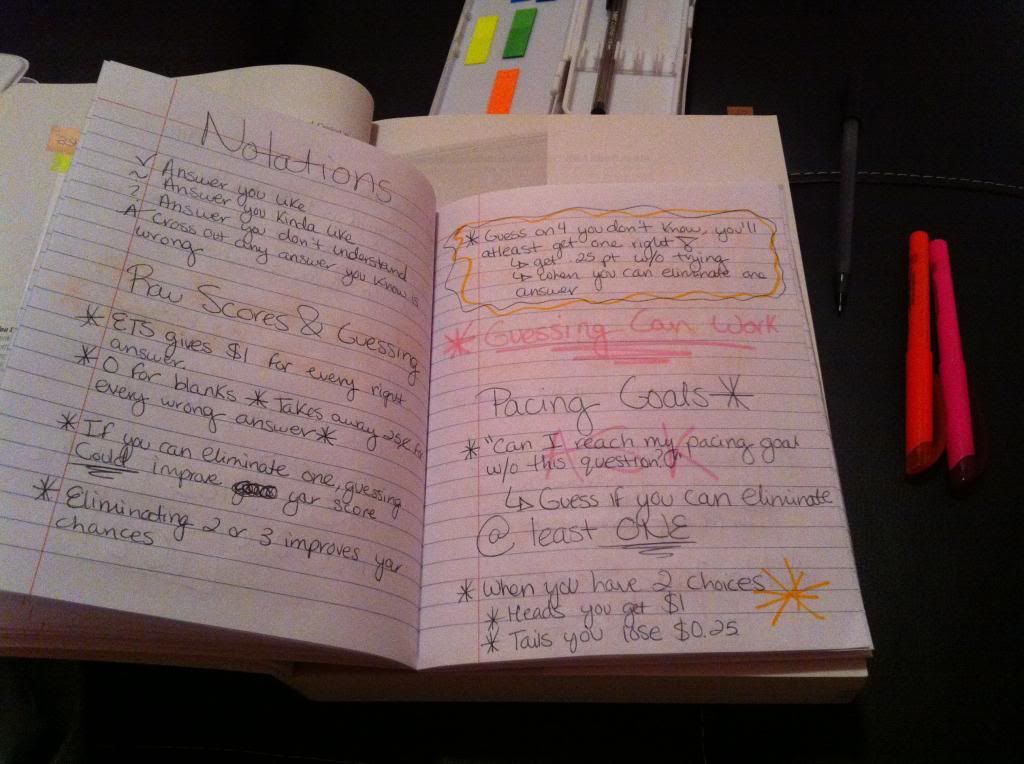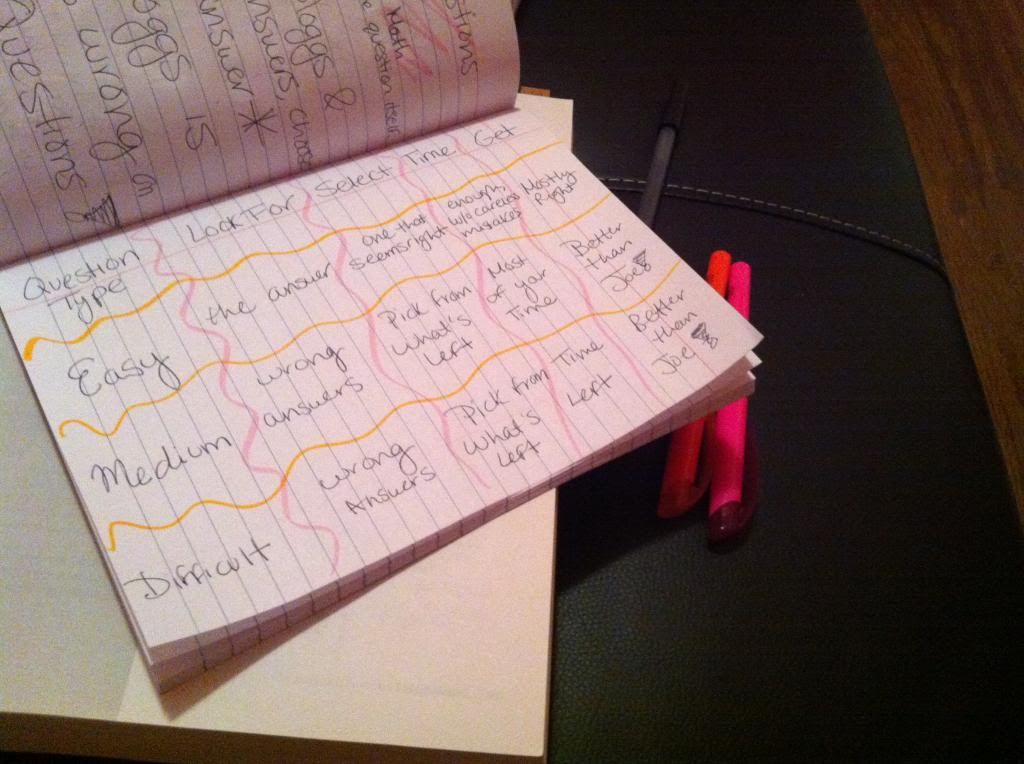This time of year seniors in high school as well as juniors feel overwhelmed with college applications and standardized tests such as the SATs. SAT stands for Scholastic Aptitude Test and colleges look at your SAT scores to determine whether you are college ready or not. So how do you achieve a score that your college choice would be pleased with?
I was not the student with a nearly perfect score on the test but, I have researched and experimented quite a lot while studying or even during the exam itself. There are several factors that come into action when trying to achieve a great score. My target score was a 1700 out of 2400 which is an above average score. This is the score my priority college Steven's Institute of Technology more or less requires.
I took the test twice so far and will be taking it a third time at the end of January. I have learned two major concepts when studying for this test:




I was not the student with a nearly perfect score on the test but, I have researched and experimented quite a lot while studying or even during the exam itself. There are several factors that come into action when trying to achieve a great score. My target score was a 1700 out of 2400 which is an above average score. This is the score my priority college Steven's Institute of Technology more or less requires.
I took the test twice so far and will be taking it a third time at the end of January. I have learned two major concepts when studying for this test:
- The SAT measures how well you take the SAT and not as much as how knowledgeable you are in the subjects you will be tested on.
- It's okay to understand where you went wrong.
These concepts may surprise you because you would normally think knowing every math formula and how to figure out the values of x and y will get you a high score in the SAT math section or being a fast and accurate reader will get you a high score in the SAT critical reading section or that being the top writer in your English class will not fail you in the SAT writing section, but you're wrong. All the material you've learned in school will definitely help you, but it takes more than knowledge to score high on the SATs.
SATs are about strategy. The scoring is strange and without familiarizing yourself with this test, you might find yourself to be lost. This test is different, so let's not consider it a test. Let's consider it a game. Using your knowledge in math, reading, and writing, you need to develop a strategy to score your best!


When studying for the SAT...
*I strongly suggest you buy an SAT practice book. The book I used was from the Princeton Review and it was about $25. For that price, I received a book full of strategies, practice tests, and a grading scale. It helped me plan out my own strategy for the score I was aiming for.
*Create a little SAT notebook with tips from the book or from the internet, sample questions, and your SAT strategy. I also took the liberty to write myself motivational notes (notice my How I Met Your Mother humor?) and used colorful highlighters to make studying a little more fun!
*Consider taking an SAT class offered at your high school or online through CollegeBoard. They will help you understand the strategies you could use when taking the test, although could be a bit pricey. Luckily, my high school offered SAT classes for $25.


The day of the SATs...
*Eat/drink what you usually do for breakfast. Do not eat too much if you usually have a small breakfast. Changing your natural morning routine could make you feel less comfortable when taking the SATs.
*Dress in whatever you feel is most comfortable.
*Bring a healthy snack along with you. Fruit, granola bars, fruit snacks, trail mix, or even dry cereal.
*Be sure to bring a bottle of water.
When taking the SATs...
*Remember for every answer you get right, you get one point and for every answer you get wrong, you get 0.25 points off. So for every four answers you get wrong, one point gets taken away.
*DO NOT GET NERVOUS! Your nerves WILL get in the way of your thinking process and slow you down and confuse you. Stay calm, if you do not know an answer or the question confuses you, circle it and move on. You can come back to it before time is called for the section you are working on.
*Whatever you do, do not change your pace. Start taking the test at a steady pace you are comfortable with. Do not slow down and DO NOT speed up.
*Try to keep track of time so you could pace yourself accordingly.
*Pay attention to how you are marking your answer sheet, do not mark in your answers in the wrong grid.
Using these simple tips and strategies, you can do your best!
